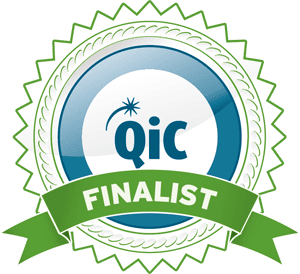Summary
The catchment for this initiative includes the area with the highest estimated prevalence of problem drug use in Scotland, which means HCV infection prevalence is high with many people unaware of their infection.
The team developed a patient-centred service embraced by all colleagues and service users to increase HCV testing and treatment. Early access programmes have shown cost savings to the Trust and expanding links with addiction centres and the local prison to reach out to difficult to engage patients has also been important.
Testing in the areas with highest problem drug use has increased by more than 80%, with testing yields up in the community and numbers of patients treated increasing yearly by up to 19.6 %.
Challenge
Inverclyde (125,000 population) has the highest estimated prevalence rate of problem drug use in Scotland (3.2 % of the population aged 15 to 64), in Refrewshire (170,000 population) the prevalence is 2.41 %, the fourth highest in Scotland. These areas have high deprivation rates and alcohol-related mortality as well as drug related deaths. Linked with the high problem drug use is a very high prevalence of HCV infection, with many patients not aware of their HCV status. Prior to this initiative, HCV services were provided by just two single consultants across two sites, with two senior nurses providing hospital-based treatment and outreach to two addiction centres and the local prison. In 2011, the blood-borne virus services of Inverclyde and Renfrewshire were merged and expanded with the appointment of a new consultant who provides input to blood borne virus clinics on both sites.
Objectives
To significantly increase HCV testing and treatment in this under-served population and align numbers with testing and treatment activities in the rest of Greater Glasgow & Clyde and Scotland. To develop a patient-centred service providing individualised care embraced by colleagues (medical, psychiatric, general practice, community teams) and liked by service users and the community - thereby increasing testing and treatment uptake and resulting in more patients cured.
Solution
The team developed the service using patient feedback from surveys and patient interviews (adjusting timing of clinics, expanding outreach services for nurse review and fibroscans), while minimising waiting times by adjusting the nurse- and consultant-led clinic numbers as necessary and providing additional clinics as required. Excellent relationships were also developed with all referring colleagues, educating referrers and communicating improvements in testing and treatment via presentations at management and educational meetings in the hospital and social services. The team built close links with addiction centres and the local prison through dissemination of information on novel treatments and regular contact with different community teams and outreach clinics.
Results
HCV testing was increased significantly in the community. Overall testing increased from 448 service users in the community in 2012 to 822 in 2014 (up 83.5%). In the 3 years 2012–2014, numbers of patients treated were 7.4 % of the patients tested (compared to Greater Glasgow & Clyde 4.9 %).Learnings
Staff education and training is essential for a state-of-the-art service. Physical and mental needs (especially addiction) should be addressed equally in the patient consultations, while non-attendance and chaotic lifestyles are often part of the patient's medical condition and should be considered in planning and conduct of the service. Follow-up in this patient group remains a challenge and will need more attention to confirm viral cure.
Evaluation
Completion of HCV treatment of the unit is comparable to other units in the country and Greater Glasgow and Clyde although at present loss to follow up is higher in the unit (54 % compared to 31 % in the rest of GG&C). This leads to lower (documented) sustained virological response (SVR) rates in the team’s cohort. Procedures are currently being revised to re-engage patients for check of viral clearance by expanding the team with 2 new nurses working in outreach. However, the number of patients cured from HCV is high and SVR rates are increasing in line with new availability of the new antiviral drugs. So far 115 patients have a proven cure and it is expected that some of the 42 patients who completed treatment but were subsequently lost to follow up might be cured as well. The team is very popular with increasing patient referrals from secondary and primary care (increased by 59.1 % from 2012 to 2014) and increasing number of patients seen for treatment assessment.



